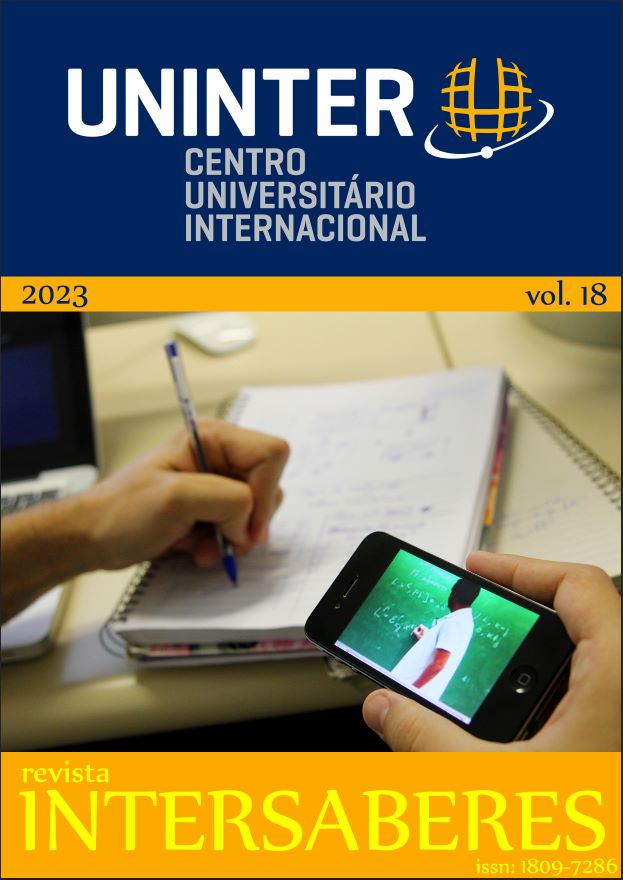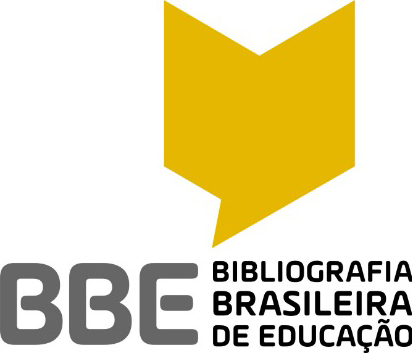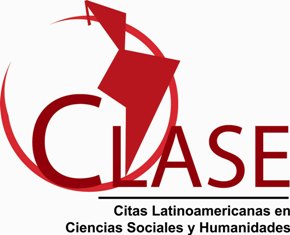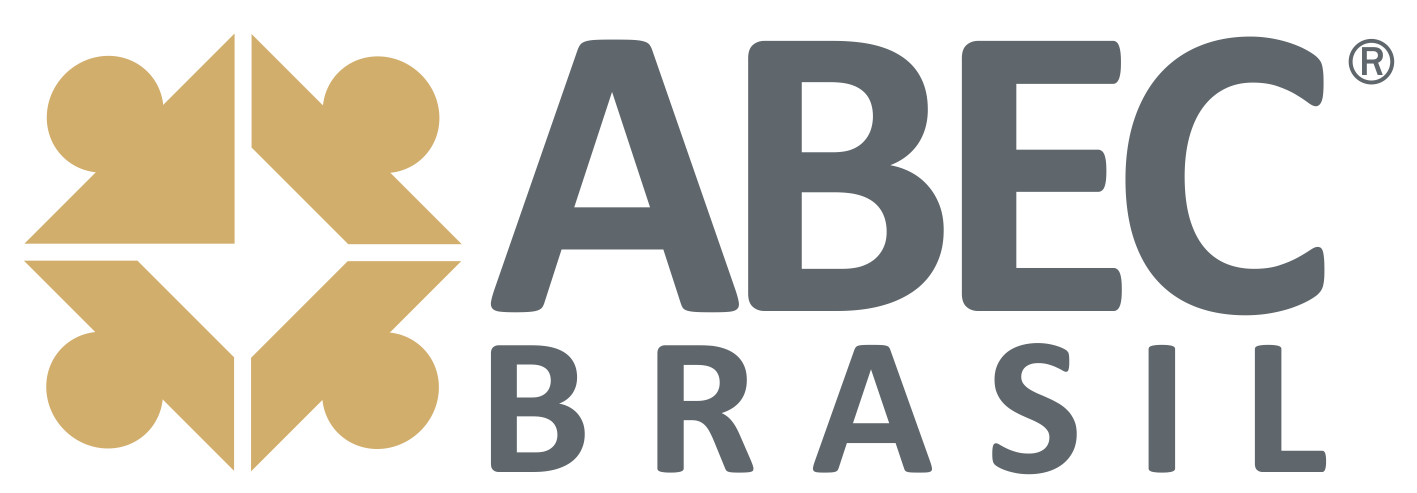Analysis of the conceptual and procedural contents learning in a distance learning course for teachers
DOI:
https://doi.org/10.22169/revint.v18.e023tl4012Palavras-chave:
Antarctica, project-based pedagogy, learning assessment, teacher trainingResumo
Neste trabalho, analisamos a aprendizagem conceitual e procedimental em um curso a distância de formação de professores para a inserção da Antártica no currículo escolar. Os instrumentos de investigação foram um questionário com quinze afirmações, aplicado antes e após o curso e um projeto polar desenvolvido pelos cursistas na turma de 2020. Participaram 138 professores de 25 estados brasileiros. Analisamos a ocorrência de aprendizagem conceitual e identificamos alguns erros conceituais. Os projetos polares permitiram verificar os temas e procedimentos adotados e se houve conhecimento construído durante o curso. As análises mostraram que, apesar de o tema ser desconhecido da grande maioria, o curso contribuiu para a inserção significativa da Antártica no currículo escolar.
Palavras-chave: Antártica. Pedagogia de projetos. Avaliação da aprendizagem. Formação de professores.
ABSTRACT
In this work, we analyze conceptual and procedural learning in a distance course for teacher training for the introduction of Antarctica into the school curriculum. The research instruments were a questionnaire with fifteen statements, applied before and after the course and a polar project developed by the students in the 2020 class. One hundred thirty-eight professors from 25 Brazilian states participated. We analyzed the occurrence of conceptual learning and identified some misconceptions. The polar projects made it possible to verify the themes and procedures adopted and whether knowledge was built during the course. The analysis showed that, despite the theme being unknown to the vast majority, the course contributed to the significant inclusion of Antarctica in the
school curriculum.
Keywords: Antarctica; project-based pedagogy; learning assessment; teacher training.
RESUMEN
En este trabajo analizamos el aprendizaje conceptual y procedimental en un curso a distancia de formación docente para la inserción de la Antártida en el currículo escolar. Los instrumentos de investigación fueron un cuestionario con quince enunciados, aplicado antes y después del curso y un proyecto polar desarrollado en la classe de 2020. Participaron 138 profesores de 25 estados brasileños. Analizamos la ocurrencia del aprendizaje conceptual e identificamos muchos errores conceptuales. Los proyectos polares permitieron verificar los temas y procedimientos adoptados y si hubo conocimiento construido durante el curso. Los análisis mostraron que, a pesar de que el tema era desconocido para la mayoría, el curso contribuyó a la inclusión significativa de la Antártida en el currículo escolar.
Palabras-clave: Antártida. Padagogía basada en proyectos. Evaluación del aprendizaje. Formación de
profesores.
Downloads
Referências
ARAÚJO, U. F. (2008). Pedagogia de projetos e direitos humanos: caminhos para uma educação em valores. Pro-Posiçõoes, 19, 193–204.
ATMOKO, Adi; PRAHERDHIONO, Henry; ADI, Eka Pramono. Cycle Learning Standards for Students Education Field. In: 1st International Conference on Information Technology and Education (ICITE 2020). Atlantis Press, 2020. p. 593-598. (icite 2020) (pp. 593–598).
AUSTRALIAN Antarctic Program, A. (2012). This week at the Macquarie Island. https://www.antarctica.gov.au/news/stations/macquarie-island/2012/this-week-at-macquarie-island-6-july-2012/.
AUSTRALIAN Government, A. (2015). Antarctic science with the australian antarctic program. Retrieved from https://classroom.antarctica.gov.au.
BARRON, Brigid; DARLING-HAMMOND, Linda. Teaching for Meaningful Learning: A Review of Research on Inquiry-Based and Cooperative Learning. Book Excerpt. George Lucas Educational Foundation, 2008.
Barticevic, E., Canales, R., Rojas, P., & RUIZ, P. (2014). Feria antártica escolar: acercando la ciencia polar a los jóvenes chilenos. Congreso Iberoamericano de Ciencia, Tecnología, Innovación y Educación. Buenos Aires.
BAUGHMAN, T. (1997). Below the convergence: Voyages toward antarctica, 1688–1839. Alan Gurney. 1997. New York and London: WW Norton & Company. Polar Record, 33 (186), 251–252.
BECK, I., HUFFMAN, L. T., XAVIER, J. C. C., & Walton, D. W. H. (2014). Education and polar research: Bringing polar science into the classroom. Journal of geological resource and engineering, 4, 217–221.
BETTELEY, P., HARR, N., & LEE JR, R. E. (2013). Sharing antarctic research in the classroom: Authentic outreach as a means of improving student performance. Performance Improvement, 52 (1), 16–23.
BLUMENFELD, P. C., SOLOWAY, E., MARX, R. W., KRAJCIK, J. S., GUZDIAL, M., & Palincsar, A. (1991). Motivating project-based learning: Sustaining the doing, supporting the learning. Educational psychologist, 26 (3-4), 369–398.
BRASIL. (2006a). Antártica: ensino fundamental e ensino médio (Vol. 9). Brasília: SEB/MEC.
___. (2006b). O Brasil e o meio ambiente antártico (Vol. 10). Brasília: Ministério da Educação.
___. (2018). BNCC – Base nacional comum curricular. Brasília, EB/MEC. Retrieved from http://basenacionalcomum.mec.gov.br/a-base
BRITISH ANTARCTIC SURVEY, B. (2020). Discovering Antarctica. Retrieved from https://discoveringantarctica.org.uk/.
CARAMELLO, N., DO SUL, J. A. I., Souza, J. S., dos SANTOS, E. A., da Cruz PIUCO, R.,
Affonso, S. F., and others (2017). Ciência polar e a comunicação entre estudantes, educadores e cientistas. Revista Eletrônica Científica da UERGS, 3 (2), 340–371.
CARPENEDO, C. B., AQUINO, F. E., SETZER, A., & ROMMO, M. (2008). Circulação de massas de ar antárticas e subantárticas e sua influência nas temperaturas do rio grande do sul entre 2004 e 2007. In XV congresso brasileiro de meteorologia (pp. 1–5).
CASTAÑEDA, Linda. Una experiencia de diseño de una tarea de evaluación sumativa en formato transmedia para formación inicial de profesorado. RIED. Revista Iberoamericana de Educación a Distancia, v. 24, n. 2, p. 203-224, 2021. Retrieved from https://revistas.uned.es/index.php/ried/article/view/29148/23083
CHOWN, S. L., & BROOKS, C. M. (2019). The state and future of antarctic environments in a global context. Annual Review of Environment and Resources, 44, 1–30.
CLIMATE EMERGENCY, I. (2014). Antarctica. http://www.climateemergencyinstitute.com.
CONSTIBLE, J., SANDRO, L., & LEE JR, R. (2007). A collaborative classroom investigation of climate change on the Antarctic Peninsula. Science Teacher, 74 (6).
CONTI, J. B. (2005). Considerações sobre as mudanças climáticas globais. Revista do Departamento de Geografia, 16, 70–75.
MATTOS, Leonardo Faria. A inclusão da Antártica no conceito de entorno estratégico brasileiro. Revista da Escola de Guerra Naval, v. 20, n. 1, p. 165-191, 2014.
DENNY, M., DORGAN, K. M., EVANGELISTA, D., HETTINGER, A., LEICHTER, J., RUDER, W. C., & TUVAL I. (2011). Anchor ice and benthic disturbance in shallow antarctic waters: interspecific variation in initiation and propagation of ice crystals. The Biological Bulletin, 221 (2), 155–163.
DOTTA, S. (2003). Análise de um site educacional: o exemplo do projeto descobrir e viver a cidade de São Paulo. Campinas, Unicamp.
DOTTA, Silvia et al. Oportunidades e Desafios no Cenário de (pós-) Pandemia para Transformar a Educação Mediada por Tecnologias. Revista Iberoamericana de Tecnología en Educación y Educación en Tecnología, n. 28, p. 157-167, 2021.
GARCIA, A. B. (2009). Textos escolares: las Malvinas y la Antártida para la “nueva Argentina” de Perón. Antíteses, 2 (4), 1033–1058.
GOLDEMBERG, J., SIMÕES, J. C., EVANGELISTA, H., de SIQUEIRA CAMPOS, L., MATA, M. M., GARCIA, C. A. E., & BREME, U. F. (2011). Antártica e as mudanças globais: um desafio para a humanidade (Vol. 9). Editora Blucher.
GONZÁLEZ, M., & LEPPE, M. (2020). Exploring the connections between antarctica and South America. In Beal, A. (Ed.), The white continent and South America. Washington: Woodrow Wilson.
HELLE, L., TYNJALA, P., & Olkinuora, E. (2006). Project-based learning in post-secondary education–theory, practice and rubber sling shots. Higher education, 51 (2), 287–314.
IPCC. (2014). Sumário para os tomadores de decisão impactos, adaptação e vulnerabilidade do quinto relatório de avaliação.
KENNICUTT, M., LIGGETT, D., HAVERMANS, C., & BADHE, R. (2014). What antarctic science is funded by national antarctic programs? international planning for antarctic and Southern Ocean science at the dawn of the 21st century.
KENNICUTT, M. C., CHOWN, S. L., CASSANO, J. J., LIGGETT, D., MASSOM, R., PECK, L. S., and others (2014). Polar research: six priorities for antarctic science. Nature News, 512 (7512), 23.
KOKOTSAKI, D., MENZIES, V., & WIGGINS, A. (2016). Project-based learning: A review of the literature. Improving schools, 19 (3), 267–277.
MADRID Protocol, M. (1991). Protocol on environmental protection to the antarctic treaty. Madrid: Antarctic-Environmental Protocol. Retrieved from https://www.ats.aq/e/protocol.html.
MORIN, E. (2002). Seven complex lessons in education for the future. Unesco.
NSF. (1996). Antarctica: A unique laboratory. Retrieved from
https://www.nsf.gov/pubs/1996/nstc96rp/chiii.htm
POUND, K., HUFFMAN, L., HUBBARD, J., CATTADORI, M., DAHLMAN, L., DOOLEY, J., TRUMMEL, B. (2019). Andrill arise: A model for team-based field research immersion for educators. Polar Record, 55 (4), 251–273.
PRIESTLEY, R., DOHANEY, J., ATKINS, C., SALMON, R., & ROBINSON, K. (2019). Engaging new antarctic learners and ambassadors through flexible learning, open education and immersive video lectures. Polar Record, 55 (4), 274–288.
RINTOUL, S. R., CHOWN, S. L., DE CONTO, R. M., ENGLAND, M. H., FRICKER, H. A., MASSON Delmotte, V., XAVIER, J. C. (2018). Choosing the future of antarctica. Nature, 558 (7709), 233–241.
RODRIGUES, L. A. d. C. (2017). Antártica no currículo formal de ciências do ensino fundamental: uma análise do tema em livros didáticos.
RODRIGUES, L. C., SANTOS, E. A., MELO, W., & ALENCAR, A. S. (2014). Análise da abordagem do tema “antártica” em livros didáticos do ensino fundamental. IV Encontro Nacional de Ensino de Ciências da Saúde e do Ambiente.
SILVEIRA, P. C., PETSCH, C., & SIMÕES, J. (2014). Entre os altos e baixos do livro didático: a Antártica não é plana. Revista Geonorte, 5 (22), 74–79.
SIMÕES, J. C. (2013). A percepção da Antártica pelo brasileiro: entre mitos e erros geográficos. Retrieved from https://www.ufrgs.br/inctcriosfera/arquivos/erros.pdf
SIMÕES, J. C., et al. (2013). Ciência antártica para o brasil: Um plano de ação para o período 2013-2022. Comitê Nacional de Pesquisas Antárticas. Coordenação para o Mar e Antártica. Secretaria de Políticas e Programas de Pesquisa e Desenvolvimento. Brasília, MCTI.
THURLINGS, M., & DEN BROK, P. (2018). Student teachers’ and in-service teachers’ peer learning: a realist synthesis. Educational Research and Evaluation, 24 (1-2), 13–50.
TURNER, J., COLWELL, S. R., MARSHALL, G. J., LACHLAN-COPE, T. A., CARLETON, A. M., JONES, P. D., IAGOVKINA, S. (2005). Antarctic climate change during the last 50 years. International journal of Climatology, 25 (3), 279–294.
UMAG. (2020). Centro de Investigación Gaia. http://www.umag.cl/gaiaantartica/.
VOOGT, J. M., PIETERS, J. M., & HANDELZALTS, A. (2016). Teacher collaboration in curriculum design teams: Effects, mechanisms, and conditions. Educational Research and Evaluation, 22 (3-4), 121–140.
WARBURTON, J., HADEMENOS, G., EILERS-GUTTENSOHN, A. A., GARAY, L., & WORSSAM, J. B. (2019). Inspiring the next generation of polar scientists: Classroom extensions from teachers with research experiences. Polar Record, 55 (4), 207–212.
XAVIER, J. C., MATEEV, D., CAPPER, L., WILMOTTE, A., & WALTON, D. W. (2019). Education and outreach by the antarctic treaty parties, OBSERVERS and experts under the framework of the antarctic treaty consultative meetings. Polar Record, 55 (4), 241–244.
ZANANDREA, A. C. V., RODRIGUES, B. M., & ALENCAR, A. S. (2018). Ensino e aprendizagem de biologia: estudo de caso da exposição “O Brasil na antártica” realizada na universidade veiga de almeida. Revista Eletrônica Científica Da UERGS, 4 (3), 487–500.
Downloads
Publicado
Como Citar
Edição
Seção
Licença
Copyright (c) 2023 REVISTA INTERSABERES

Este trabalho está licenciado sob uma licença Creative Commons Attribution-NonCommercial-NoDerivatives 4.0 International License.
Os direitos autorais dos artigos publicados na Revista são de acordo com a licença CC-BY-ND - Creative Commons ( https://creativecommons.org/licenses/by-nd/4.0/legalcode)
Esta licença permite que outras pessoas reutilizem o trabalho para qualquer finalidade, inclusive comercialmente; no entanto, não pode ser compartilhado com outras pessoas de forma adaptada e o crédito deve ser fornecido ao autor.
Os direitos autorais dos artigos publicados na Revista são do autor, com os direitos de primeira publicação para a Revista





























